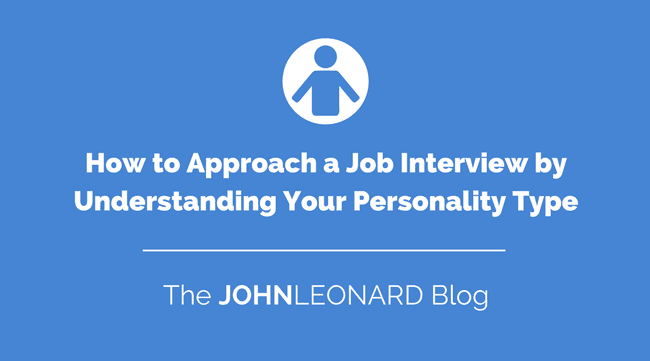
The Myers-Briggs Type Indicator is a series of questions that generates a four letter character, which translates to one of 16 different personality types. By understanding the quirks of your personality, you can leverage that into being more effective in job interviews, as well as determine which career may be the best fit for you. From gauging the personality of your interviewer to highlighting your unique strengths, learn how the MBTI is a tool you can use to measure your success in a new role.
Extraversion (E) vs Introversion (I)
The first distinction is between Extraversion and Introversion, which explains how you’re energized. Extroverts are people persons and love spending time around others. Introverts find that they work best on their own and get exhausted by too much social interaction.
In an interview setting, it seems that extroverts have an advantage. They are outgoing and personable, and excel at talking. However, they also need to be careful of overwhelming their interviewers. It is important to take a breath in between sentences to come up with a well-formed response rather than rambling on. Introverts, on the other hand, may find it difficult to overcome their shyness. In this situation, it is possible to “flex,” or channel your inner extrovert. Prepare for the interview by coming up with answers to possible questions so that you have enough time to rehearse and deliver a well-thought-out answer.
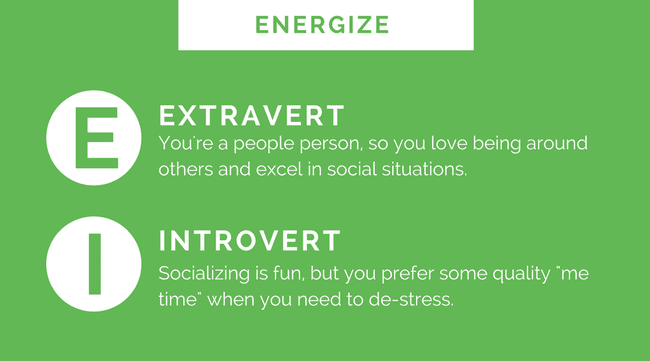
This pair measures how you and others take in information. People who are Sensing are highly practical, pragmatic, and down to earth. They employ a step-by-step approach, walking the interviewer through their thought process when giving a response. While some interviewers enjoy seeing how you think, others might get impatient and want you to get to the point more quickly.
In that case, those who prefer Intuition look at the big picture. They are imaginative, open-minded, and curious, which helps them brainstorm ideas, many of which are out-of-the-box. A word of caution: make sure not to jump from idea to idea. Instead, focus on one point and back it up with supporting facts – work from the top-down to give a thorough answer.
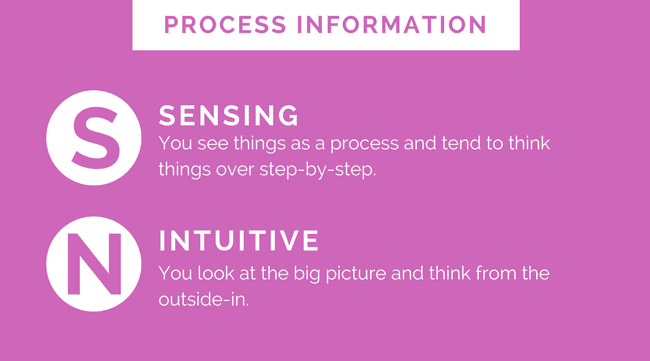
When it comes to making decisions, Thinkers focus on objectivity and rationality, prioritizing logic over emotions. Feelers are more sensitive and emotionally expressive and place more emphasis on social harmony and cooperation.
If you want to form conclusions that are in the best interest of the whole, Thinkers are who you want on your team. By keeping the bottom line in mind, they can highlight their commitment to the organization and deliver results. While this is great for an employer, Thinkers need to be wary of appearing merciless and callous. Feelers have the opposite problem of letting their empathy get in the way of making hard decisions. At an interview, acknowledge that while you do take fellow employees and people into account, the organization’s success is still a priority.
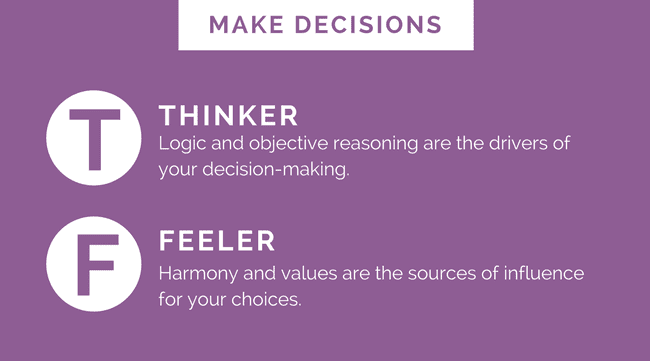
The final two qualities have to do with how you organize your external world and present it to others. Judgers are sticklers for planning and remain true to decisions. If you are in this category, emphasize your time management and organization skills. Explain how you remain clear-headed when faced with deadlines because you are able to come up with and stick to a logical plan of action that will help you get the project done. Be prepared to outline how you would react if things don’t go as planned – not everything will proceed smoothly and you need to be open to alternatives rather than stubborn and insistent on your original plan.
Those who fall in the Perceiving group are very good at improvising and spotting opportunities. In an interview, talk about your flexibility and adaptability. Explain that you like to keep your options open because nothing is set in stone. However, assure your interviewer that you are not flighty and don’t crack under pressure. Even though you welcome alternative solutions, you are able to meet deadlines and can still remain organized.
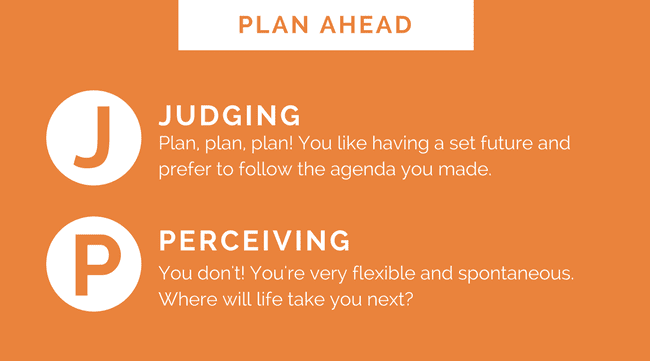
Interested in other ways to land you next job? Subscribe to the JOHNLEONARD blog below in order to receive even more advice to help with your job search.
